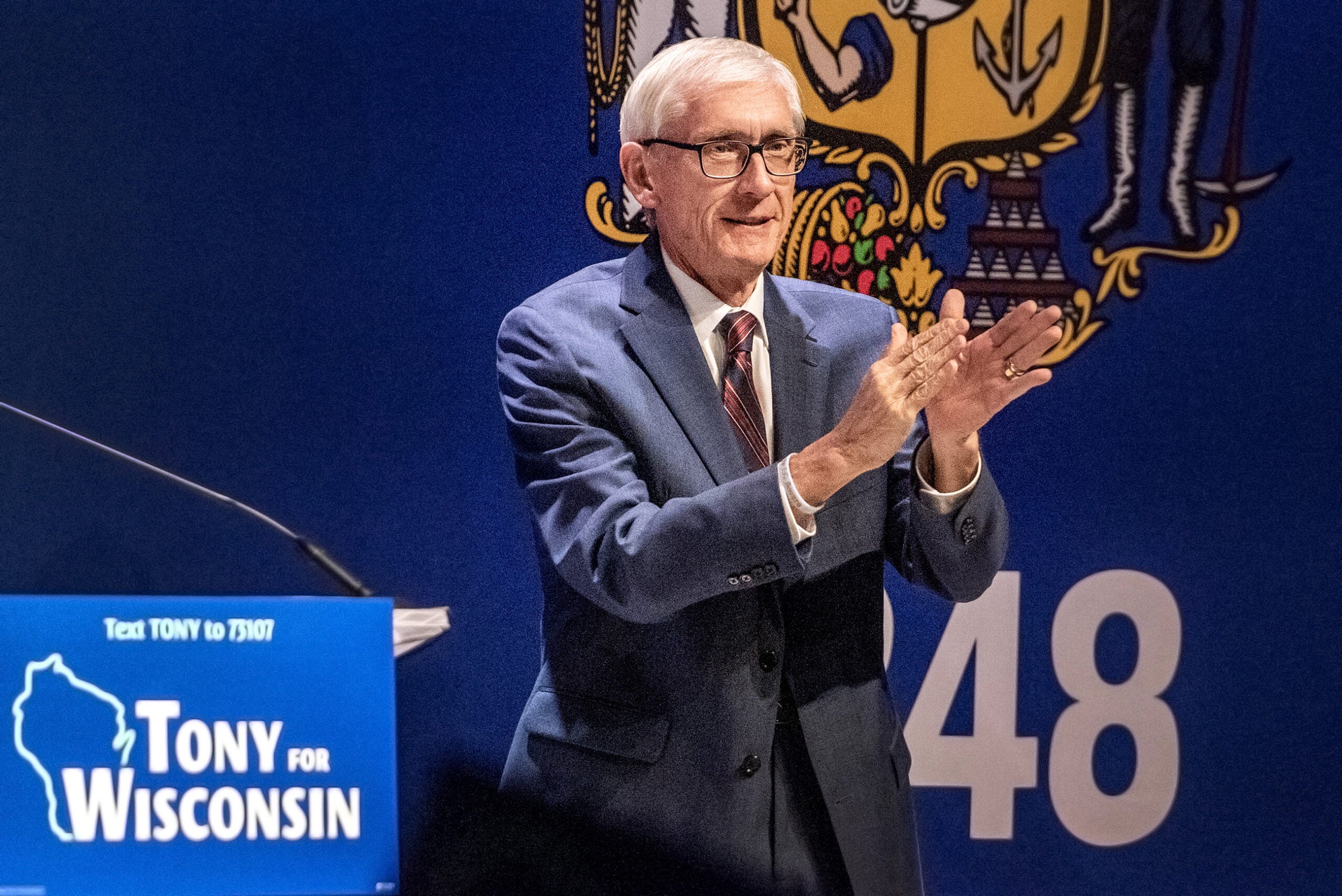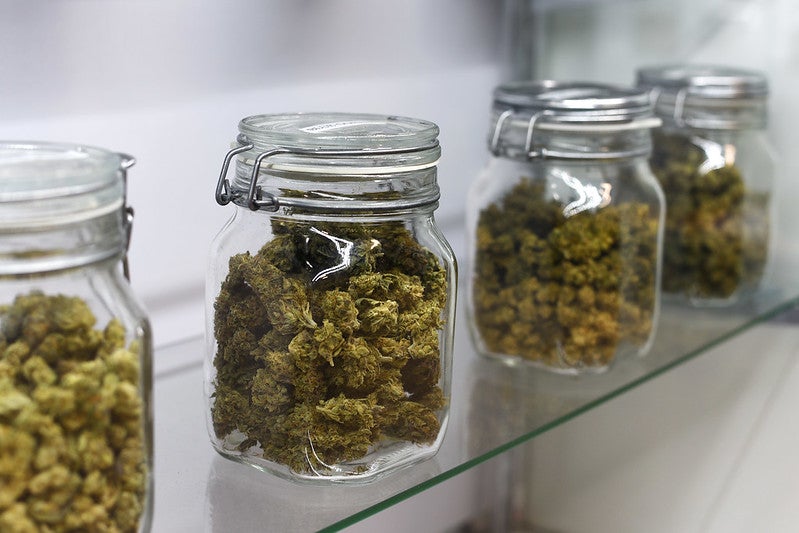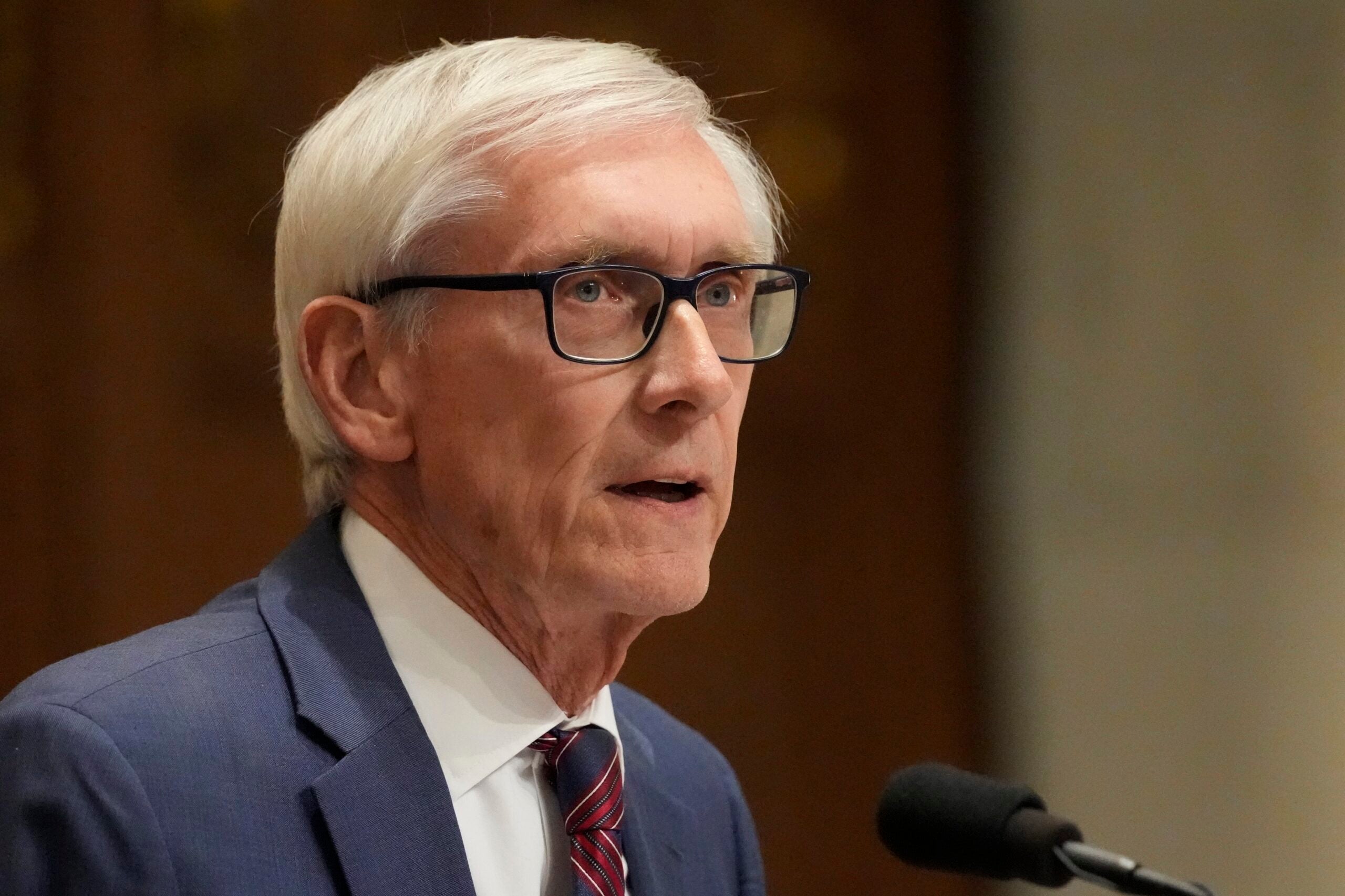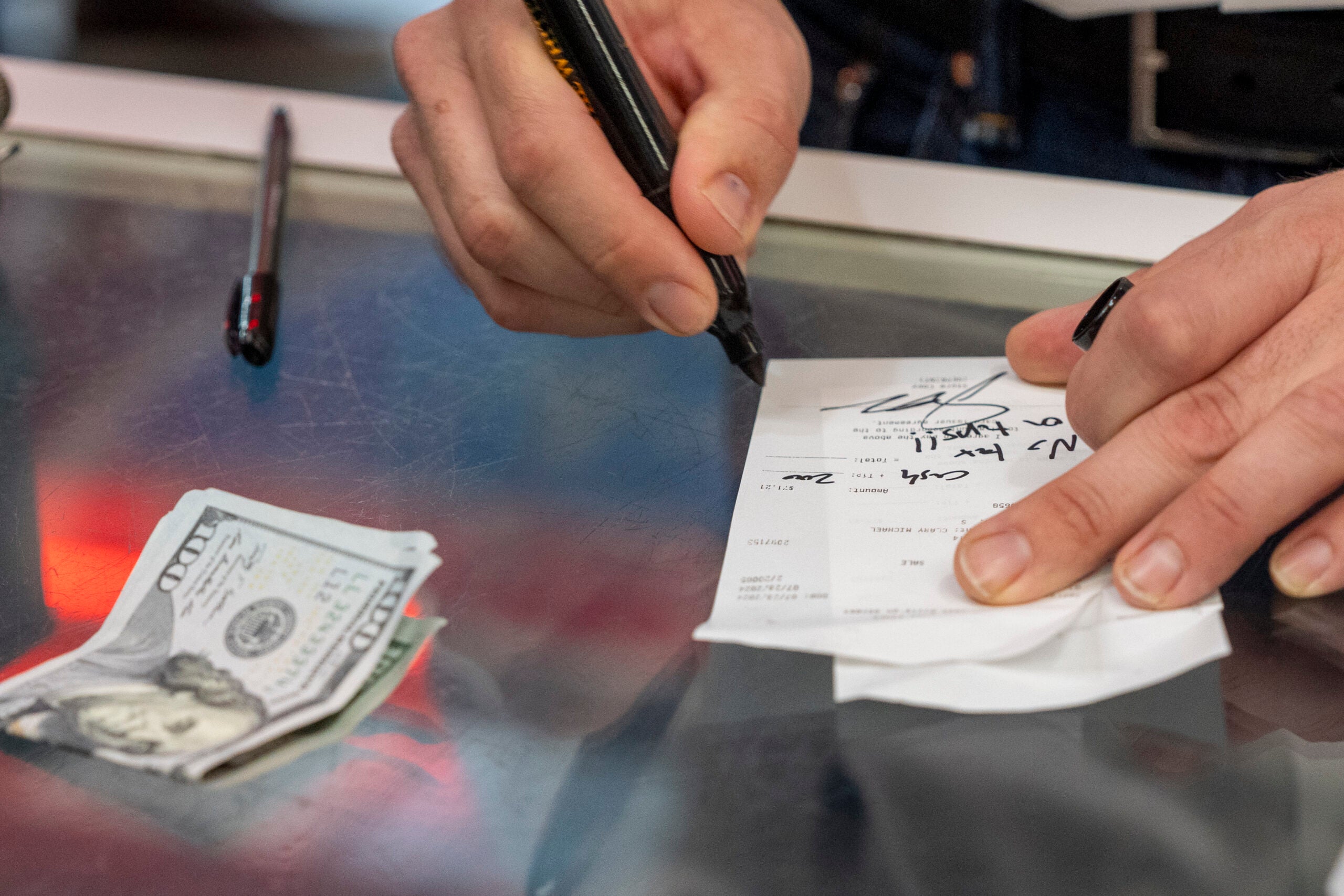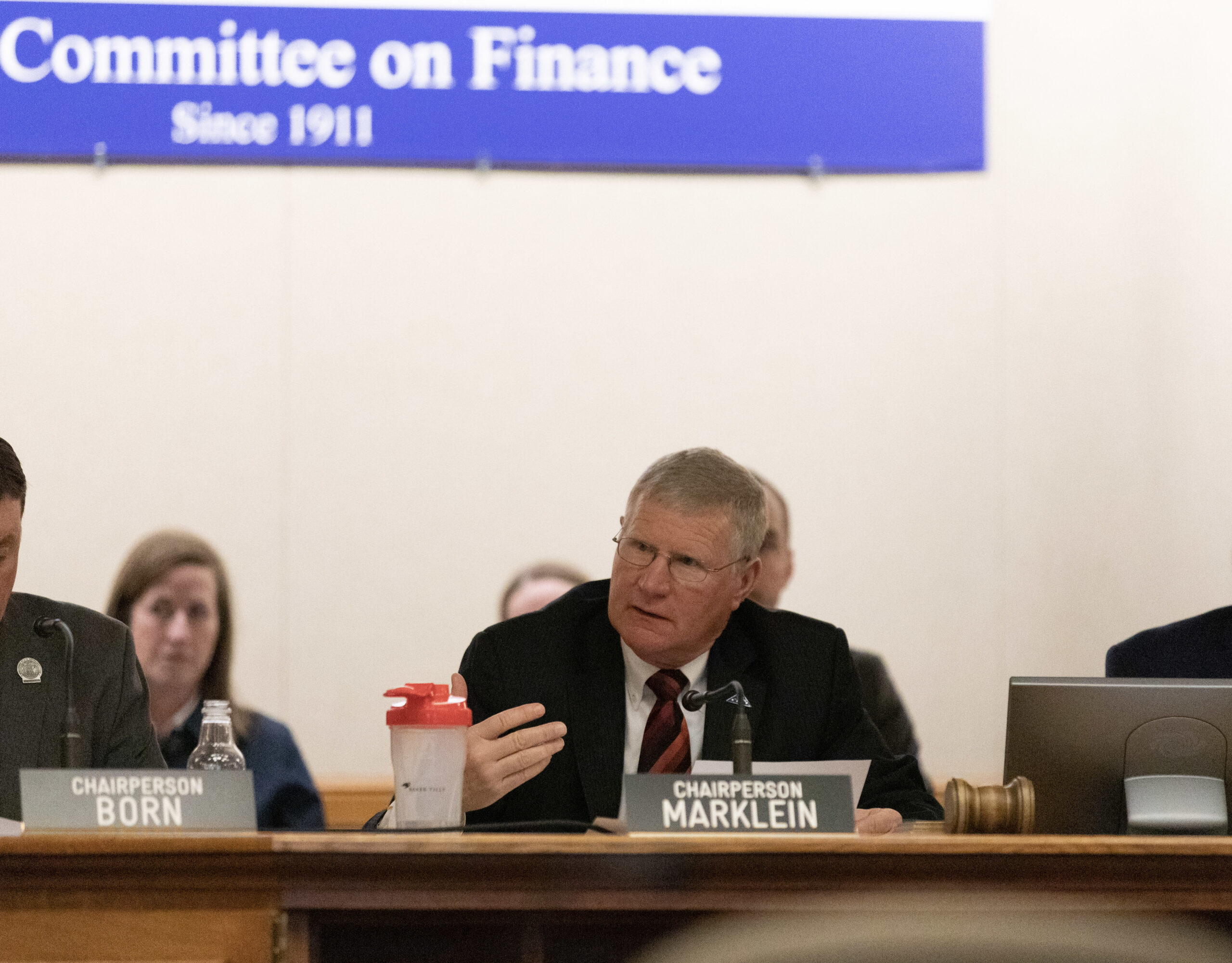Gov. Tony Evers said he’ll reintroduce a plan to legalize marijuana for recreational use as part of the budget he unveils to lawmakers early next year.
But Evers said he’d also sign a bill to legalize medicinal marijuana if GOP lawmakers send one to his desk.
Evers and Republicans have been at odds over how to regulate marijuana ever since he took office.
News with a little more humanity
WPR’s “Wisconsin Today” newsletter keeps you connected to the state you love without feeling overwhelmed. No paywall. No agenda. No corporate filter.
In his first budget, Evers proposed decriminalizing certain amounts of marijuana, an idea Republicans rejected. In his second budget, Evers called for the full legalization of marijuana, which GOP lawmakers also voted down.
In an interview Tuesday, Evers said he would reintroduce his plan to legalize recreational marijuana next year.
“It’s going to be in the budget,” Evers said. “No question about that.”
But Evers said it was his sense that GOP lawmakers might be willing to accept something less than full legalization.
“There’s an increasing number of people in the Legislature that might be willing to go towards medicinal marijuana,” Evers said. “If the Legislature can rally around medicinal marijuana, I certainly would sign that bill.”
GOP support for medical marijuana was tepid last session, although a handful of Republican lawmakers are vocal supporters.
Republicans held a public hearing in April on a plan to legalize the drug for medical use, but the move came after the Legislature had already adjourned for the year, meaning the bill could not pass.
Still, state Sen. Mary Felzkowski, R-Irma, described the hearing as a significant step to win over reluctant Republican lawmakers. Felzkowski is a cancer survivor who has said she wishes medical marijuana had been an option during her recovery.
Wisconsin is on its way to becoming an island among Midwest states when it comes to recreational marijuana. Already, marijuana is legal in Illinois and Michigan, and Minnesota Gov. Tim Walz, a Democrat, said his state would pass a bill to legalize marijuana by May.
Thirty-seven states allow for the medical use of cannabis products, according to the National Conference of State Legislatures. A total of 21 states also allow for the sale of recreational marijuana.
While medical marijuana has been a tough sell in Wisconsin state government, the public strongly supports it. A 2019 Marquette University Law School poll found 83 percent of voters favored legalizing medical marijuana.
More recently, a February Marquette poll found 61 percent of Wisconsin voters favored legalizing recreational marijuana, including majorities of both Republicans and Democrats.
Despite public support, Evers conceded his proposal to legalize recreational marijuana may be a non-starter in the Legislature.
“Even though the people of Wisconsin by huge numbers in polling support recreational marijuana in the state of Wisconsin, I just don’t know if the Republicans are there yet,” Evers said. “All I know is that there is talk on the Republican side, from what I’ve heard, around medicinal.”

Evers opposes GOP proposals for ‘flat tax’ in Wisconsin
Evers also said Tuesday that he opposes a Republican idea to move to a “flat” tax where all taxpayers pay the same rate regardless of their income.
Senate Majority Leader Devin LeMahieu, R-Oostburg, said after the November election that he favored a flat tax in Wisconsin. The state currently has a progressive income tax, where people who earn more money pay a higher tax rate. LeMahieu has since said that he’d like to move toward a 3.5 percent flat tax.
Evers said Tuesday that he was “not a fan” of the flat tax and would instead call for cutting income taxes for middle class residents by another 10 percent.
“The flat tax, at the end of the day, helps folks at the top end,” Evers said. “And I think the need is much more significant in the middle class.”
A move to a flat tax would be a dramatic step in Wisconsin, the state where the progressive income tax was born.
Under Wisconsin’s progressive income tax, people who earn up to $12,760 are taxed at a rate of 3.54 percent, people with incomes between $12,760 and $25,520 are taxed at a 4.65 percent rate, and people who earn between $25,520 and $280,950 pay a rate of 5.3 percent. The wealthiest residents — those individuals who earn more than $280,950 — pay a 7.65 percent tax rate.
Evers has signed two Republican-authored income tax cuts since he became governor, the largest of which was in the last state budget.
The next budget will be Evers’ third as governor, and despite a projected record budget surplus, there’s no guarantee the process will go smoothly. LeMahieu and Assembly Speaker Robin Vos, R-Rochester, have called for “generational” tax reform while Evers has called for a $2 billion increase in public school spending.
The two sides sparred regularly during his first term, with lawmakers ignoring Evers’ special sessions on issues ranging from abortion to gun laws, and Evers vetoing a record number of GOP bills. But with his reelection now behind him, Evers said he hopes they could find some areas of agreement on issues like state shared revenue for local governments.
“We’re on speaking terms,” Evers said. “I think there is a general hope that there is some meeting of the minds going forward.”
Wisconsin Public Radio, © Copyright 2025, Board of Regents of the University of Wisconsin System and Wisconsin Educational Communications Board.

